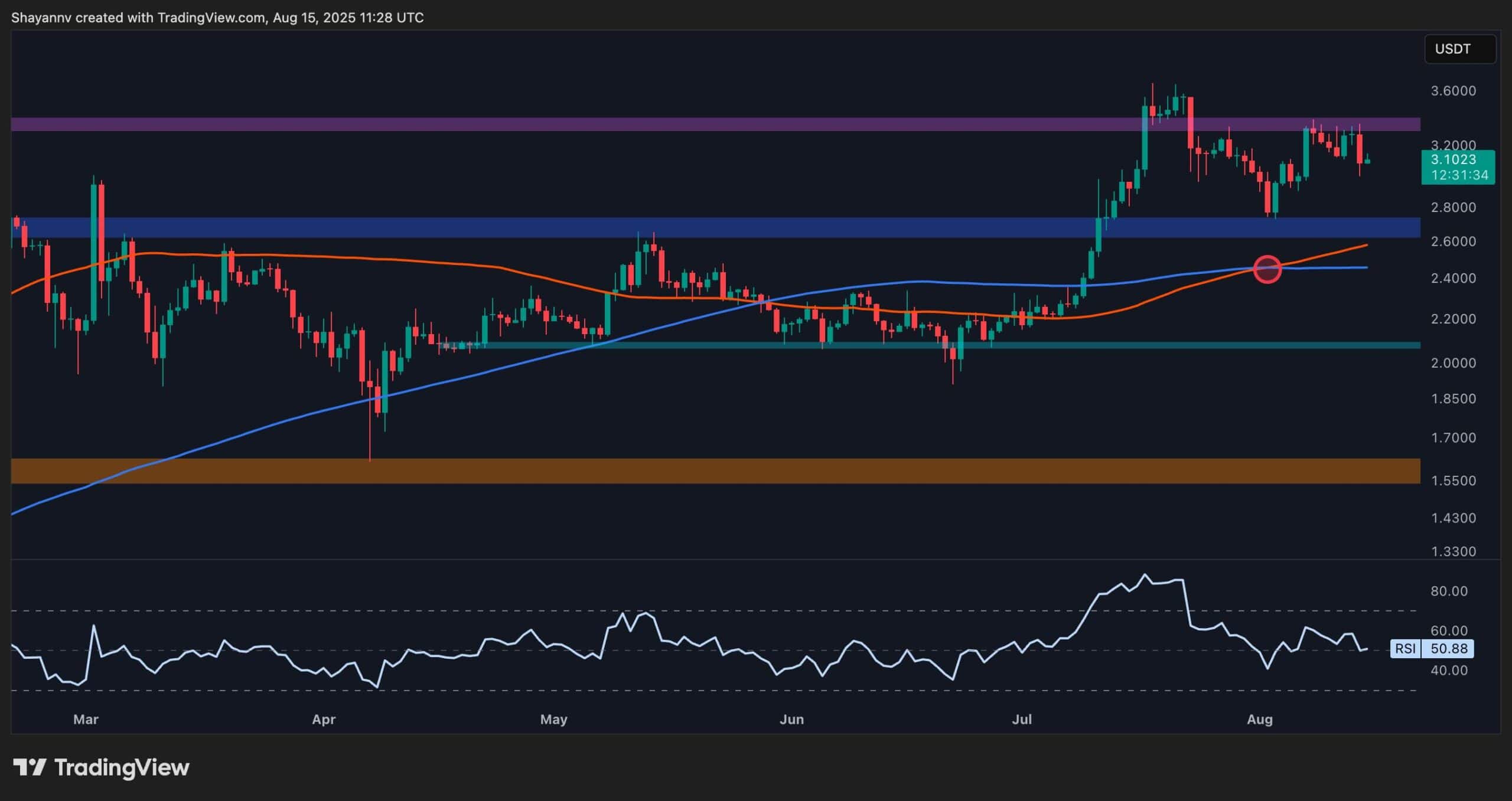Cryptocurrency
Bug bounties can help secure blockchain networks, but have mixed results

Bug bounties are programs organizations offer to incentivize security researchers or ethical or white hat hackers to find and report vulnerabilities in their software, websites or systems. Bug bounties aim to improve overall security by identifying and fixing potential weaknesses before malicious actors can exploit them.
Organizations that implement bug bounty programs typically establish guidelines and rules outlining the scope of the program, eligible targets, and the types of vulnerabilities they are interested in. Depending on the severity and impact of the discovered vulnerability, they may also define the rewards offered for valid bug submissions, ranging from small amounts of money to significant cash prizes.
Security researchers participate in bug bounty programs by searching for vulnerabilities in designated systems or applications. They analyze the software, conduct penetration testing, and employ various techniques to identify potential weaknesses. Once a vulnerability is discovered, it is documented and reported to the organization running the program, usually through a secure reporting channel provided by the bug bounty platform.
Upon receiving a vulnerability report, the organization’s security team verifies and validates the submission. The researcher is rewarded according to the program’s guidelines if the vulnerability is confirmed. The organization then proceeds to fix the reported vulnerability, improving the security of its software or system.
Bug bounties have gained popularity because they provide a mutually beneficial relationship. Organizations benefit from the expertise and diverse perspectives of security researchers who act as an additional layer of defense, helping identify vulnerabilities that may have been overlooked. On the other hand, researchers can showcase their skills, earn financial rewards and contribute to the overall security of digital ecosystems.
Discovering vulnerabilities within a platform’s code is crucial when it comes to protecting users. According to a report by Chainalysis, around $1.3 billion worth of crypto was stolen from exchanges, platforms and private entities.

Bug bounties can help to encourage responsible and coordinated vulnerability disclosure, encouraging researchers to report vulnerabilities to the organization first rather than exploiting them for personal gain or causing harm. They have become integral to many organizations’ security strategies, fostering a collaborative environment between security researchers and the organizations they help protect.
Getting involved
Communities can play a crucial role in bug hunting by leveraging their diverse perspectives and skill sets. When organizations engage the community, they tap into a vast pool of security researchers with varying backgrounds and experiences.
Troy Le, head of business at blockchain auditing firm Verichains, told Cointelegraph, “Bug bounty programs harness the power of the community to enhance the security of blockchain networks by engaging a wide range of skilled individuals, known as security researchers or ethical hackers.”
Le continued, “These programs incentivize participants to search for vulnerabilities and report them to the bounty organization. Organizations can leverage a diverse talent pool with varying expertise and perspectives by involving the community. Ultimately, bug bounty programs promote transparency, facilitate continuous improvement, and bolster the overall security posture of blockchain networks.”
In addition to diverse perspectives, engaging the community in bug hunting offers scalability and speed in the discovery process.
Organizations often face resource constraints, such as limited time and manpower, which can hinder their ability to thoroughly assess their systems for vulnerabilities. However, by involving the community, organizations can tap into a large pool of researchers who can work simultaneously to identify bugs.
This scalability allows for a more efficient bug discovery process, as multiple individuals can review different aspects of the system concurrently.
Another advantage of engaging the community in bug hunting is the cost-effectiveness compared to traditional security audits. Traditional audits can be expensive, involving hiring external security consultants or conducting in-house assessments. On the other hand, bug bounty programs provide a cost-effective alternative.
Recent: Google Cloud furthers Bitcoin Lightning ambitions with Voltage partnership
This pay-for-results model ensures that organizations only pay for actual bugs found, making it a more cost-efficient approach. Bug bounties can be tailored to fit an organization’s budget, and the rewards can be adjusted based on the severity and impact of the reported vulnerabilities.
Pablo Castillo, chef technology officer of Chain4Travel — the facilitator of the Camino blockchain — told Cointelegraph, “Engaging the community in bug hunting has many benefits for both organizations and security researchers. For one, it expands access to talent and expertise, allowing them to tap into a diverse set of skills and perspectives.”
Castillo continued, “This increases the chances of discovering and effectively addressing vulnerabilities, thereby improving the overall security of blockchain networks. It also fosters a positive relationship with the community, building trust and reputation within the industry.”
“For security researchers, participating in bug bounty programs is an opportunity to showcase their skills in a real-world scenario, gain recognition and potentially earn financial rewards.”
This collaboration not only strengthens the organization’s security posture but also provides recognition and rewards to the researchers for their valuable contributions. The community benefits by gaining access to real-world systems and the opportunity to sharpen their skills while making a positive impact.
Crypto projects launching without auditing
Many crypto projects launch without conducting proper security audits and instead rely on white hat hackers to uncover vulnerabilities. Several factors contribute to this phenomenon.
Firstly, the crypto industry operates in a fast-paced and highly competitive environment. Being the first to market can provide a significant advantage. Comprehensive security audits can be time-consuming, involving extensive code review, vulnerability testing and analysis. By skipping or delaying these audits, projects can expedite their launch and gain an early foothold in the market.
Secondly, crypto projects, especially startups and smaller initiatives, often face resource constraints. Conducting thorough security audits by reputable auditing firms can be expensive.
These costs include hiring external auditors, allocating time and resources for testing, and addressing the identified vulnerabilities. Projects may prioritize other aspects, such as development or marketing due to limited budgets or prioritization decisions.
Another reason is blockchains’ decentralized nature and the crypto space’s strong community-driven ethos. Many projects embrace the philosophy of decentralization, which includes distributing responsibilities and decision-making.

However, there are significant downsides to launching crypto projects without proper audits and relying solely on white hat hackers. One major downside is the increased risk of exploitation. Without a thorough codebase assessment, potential vulnerabilities and weaknesses may remain undetected.
Malicious actors can exploit these vulnerabilities to compromise the project’s security, leading to theft of funds, unauthorized access or system manipulation. This can result in significant financial losses and reputational damage.
Another downside is the incomplete or biased nature of security assessments. While white hat hackers play a crucial role in identifying vulnerabilities, they do not provide the same level of assurance as comprehensive audits conducted by professional security firms.
White hat hackers may have biases, areas of expertise or limitations regarding time and resources. They may focus on specific aspects or vulnerabilities, potentially overlooking other critical security issues. The overall security assessment may be incomplete without a holistic view provided by a thorough audit.
Castillo said, “While white hat hackers play a critical role in identifying vulnerabilities, relying solely on them may not provide comprehensive coverage. Without proper security audits with established providers, there is a greater chance of missing critical vulnerabilities or design flaws that malicious actors could exploit.”
Castillo continued, “Inadequate security measures can lead to various risks, including potential breaches, loss of user funds, reputational damage and more. To sum up: Launching without an audit could put the project at risk of non-compliance, leading to legal issues and financial penalties.”
Furthermore, relying solely on white hat hackers may lack the accountability and quality control measures typically associated with professional audits. Auditing firms follow established methodologies, standards and best practices in security testing.
They also adhere to industry regulations and guidelines, ensuring a consistent and rigorous evaluation of the project’s security posture. In contrast, relying on ad hoc assessments by individual white hat hackers may result in inconsistent methodologies, varying levels of rigor and potential gaps in the security assessment process.
Moreover, the legal aspects surrounding the actions of white hat hackers can be ambiguous. While many projects appreciate and reward responsible disclosure, the legal implications can vary depending on the jurisdiction and project policies.
White hat hackers may face challenges in claiming rewards, receiving proper recognition, or even encountering legal repercussions in some cases. Without clear legal protection and well-defined frameworks, there can be a lack of trust and transparency between the project and the hackers.
Lastly, relying solely on white hat hackers may result in a narrower range of expertise and perspectives than a comprehensive audit. Auditing firms bring specialized knowledge, experience and a systematic approach to security testing.
They can identify complex vulnerabilities and potential attack vectors that individual hackers may miss. By skipping audits, projects risk not uncovering critical vulnerabilities that could undermine the system’s security.
Le said, “Launching crypto projects without proper security audits and relying solely on white hat hackers carries significant risks and downsides.”
Le stressed that proper security audits conducted by experienced professionals “provide a systematic and thorough evaluation of a project’s security posture.” These audits help identify vulnerabilities, design flaws and other potential risks that might go unnoticed.
“Neglecting these audits can result in serious consequences, including loss of user funds, reputational damage, regulatory issues and even project failure,” Le said. “It is essential to adopt a balanced approach that includes both bug bounty programs and professional security audits to ensure comprehensive security coverage and mitigate potential risks.”
Recent: Animoca still bullish on blockchain games, awaits license for metaverse fund
While involving white hat hackers and the community in security testing can provide valuable insights and contributions, relying solely on them without proper audits presents significant downsides.
It increases the risk of exploitation, can result in incomplete or biased security assessments, lacks accountability and quality control, offers limited legal protection, and may lead to the oversight of critical vulnerabilities.
To mitigate these downsides, crypto projects could prioritize comprehensive security audits conducted by reputable professional auditors while still leveraging the skills and enthusiasm of the community through bug bounty programs and responsible disclosure initiatives.
Collect this article as an NFT to preserve this moment in history and show your support for independent journalism in the crypto space.
Cryptocurrency
Ethereum Foundation, Whales, and Hackers: What’s Driving the ETH Sell-Off?

TL;DR
- Whales, hackers, and the Ethereum Foundation wallets moved over $500M in ETH through large sales and withdrawals.
- Ethereum transfers rose to 4.6M ETH, nearing the monthly high of 5.2M recorded in July.
- Staking inflows hit 247,900 ETH, the highest in a month, locking more supply from trading.
Large Withdrawals and Whale Activity
Ethereum (ETH) has seen heavy movement from major wallets over the past few days. On-chain data from Lookonchain shows a newly created wallet pulled 17,591 ETH, worth $81.62 million, from Kraken in just two hours.
Over three days, two new wallets withdrew a combined 71,025 ETH, valued at $330 million, from the exchange.
One of these wallets, address 0x2A92, has withdrawn 53,434 ETH, worth $242.34 million, in two days. This includes a recent purchase of 30,069 ETH, valued at $138.46 million, during a market drop.
Major ETH Holders Offload Millions Amid Price Rally
In contrast, several separate entities have been disposing of some ETH holdings. A wallet tied to a hacker address 0x17E0 sold 4,958 ETH for $22.13 million at $4,463, securing a profit of $9.75 million. Earlier this year, the same address sold 12,282 ETH at $1,932 and later bought back part of the amount at higher prices.
A different whale sold 20,600 ETH for $96.55 million over the past two days, generating a profit of more than $26 million after holding the position for nine months.
Meanwhile, an Ethereum Foundation-linked wallet, 0xF39d, sold 6,194 ETH worth $28.36 million in the last three days at an average price of $4,578.
Recent sales from the same wallet included an additional 1,100 ETH and 1,695 ETH for over $12.7 million combined.
The #EthereumFoundation-linked wallet(0xF39d) sold another 1,300 $ETH($5.87M) at $4,518 ~11 hours ago.
Over the past 3 days, this wallet has sold a total of 6,194 $ETH($28.36M) at an average price of $4,578.https://t.co/4hfCWymHVG pic.twitter.com/ErUyEY8SJy
— Lookonchain (@lookonchain) August 15, 2025
Network Activity on the Rise
CryptoQuant data shows Ethereum’s total tokens transferred have been climbing since August 9. After ranging between 1 million and 3 million ETH through late July and early August, transfers have risen to 4.6 million ETH, approaching the monthly high of 5.2 million recorded in mid-July. This increase has occurred alongside a price rally from about $3,400 to $4,600.
Interestingly, staking inflows generally stayed between 20,000 and 80,000 ETH per day over the past month. On August 14, inflows jumped to 247,900 ETH, the highest in the period.
At the time, ETH was trading near $4,600. Large staking deposits reduce the amount of ETH available for immediate trading, as staked coins are locked for a set period.
In the meantime, ETH trades at $4,647 with a 24-hour volume of $68.25 billion, down 2% on the day but up 19% over the week.
Binance Free $600 (CryptoPotato Exclusive): Use this link to register a new account and receive $600 exclusive welcome offer on Binance (full details).
LIMITED OFFER for CryptoPotato readers at Bybit: Use this link to register and open a $500 FREE position on any coin!
Cryptocurrency
Massive DOGE Whale Activity Hints at $1 Breakout

TL;DR
- Whales bought two billion DOGE this week, lifting their combined holdings to 27.6 billion coins.
- A single 900M DOGE transfer worth $208M to Binance drew attention to large exchange movements.
- DOGE broke key resistance, with momentum building for a possible push toward the $1 price mark.
Price and Market Moves
Dogecoin (DOGE) traded at $0.23 at press time, slipping 4% over the past day but still showing a 2% gain for the week. Daily turnover came in at about $6.18 billion.
Meanwhile, the broader crypto market saw over $1 billion in liquidations. Hotter-than-expected US Producer Price Index data pushed traders to scale back expectations of a near-term Federal Reserve rate cut. DOGE had roughly 290,500 coins liquidated during the sell-off.
On the two-week chart, analyst Trader Tardigrade notes that DOGE has cleared a downward-sloping resistance line after completing what appears to be a “wave V” in an Elliott Wave sequence. Similar setups in the past, where prolonged declines stayed within falling channels before breaking higher, have been followed by sharp rallies.
$Doge/2-week#Dogecoin is gaining strong momentum to surge above $1 pic.twitter.com/TuSEKr19nv
— Trader Tardigrade (@TATrader_Alan) August 15, 2025
Momentum gauges are also turning up. The Stochastic RSI, which had dropped into oversold territory, is now heading higher. Previous reversals from this zone have coincided with sustained upward moves. The current formation points to a possible run that could carry DOGE past the $1 mark.
Heavy Whale Buying and Large Transfers
As reported by CryptoPotato, blockchain data shows large investors have added two billion DOGE in the past week, spending just under $500 million. That brings their holdings to about 27.6 billion coins, or 18% of the supply. The buying streak has prompted speculation within the community.
Recently, Whale Alert flagged a 900 million DOGE transfer worth about $208 million into Binance. The tracking indicates that it originated from a wallet connected to the exchange, likely as an internal activity. The address involved holds 2.88 billion DOGE, one of the largest balances on the network.
Ali Martinez also reports that transactions above $1 million reached a one-month high, with activity building since early August and peaking as DOGE traded at $0.25.
Whales are back! Dogecoin $DOGE activity at a 1-month high. pic.twitter.com/C83Pv68mCt
— Ali (@ali_charts) August 14, 2025
Sentiment Building
Analyst Gordon described the current setup as “a nice bit of consolidation” before a potential breakout, adding,
“This will be one of the first coins normies FLOCK to & the pump will be MASSIVE.”
With whale accumulation rising, high-value transfers increasing, and a bullish technical pattern in play, DOGE is positioned for a potential push toward $1 if momentum holds.
Binance Free $600 (CryptoPotato Exclusive): Use this link to register a new account and receive $600 exclusive welcome offer on Binance (full details).
LIMITED OFFER for CryptoPotato readers at Bybit: Use this link to register and open a $500 FREE position on any coin!
Cryptocurrency
Ripple Price Analysis: XRP at Risk as Key Support Levels Could Trigger Sharp Drop

XRP has recently entered a consolidation phase after a strong rally earlier this summer, with the price action now hovering around key resistance levels on both its USDT and BTC pairs. Yet, while momentum has slowed, the charts still indicate a generally bullish structure, with multiple key support levels remaining firmly in place.
Technical Analysis
By ShayanMarkets
The USDT Pair
On the XRP/USDT daily chart, the price is currently trading near the $3.10 mark, facing a strong resistance zone around $3.40. This follows a breakout above the $2.70 range in July, which has now flipped into a support area.
Both the 100-day and 200-day moving averages are also trending upward and recently formed a bullish crossover around $2.45, reinforcing the medium-term bullish sentiment. If the $3.40 resistance breaks, a push toward the critical $4.00 range becomes likely.
However, the RSI hovering near the neutral 50 level suggests a lack of strong momentum for now, meaning a short-term pullback into the $2.80 support zone is still possible.
This zone will be key for maintaining the bullish structure. Losing it could open the door for a deeper correction toward the 200-day moving average located around the $2.40 mark. Yet, as long as the price stays above the moving averages, the broader trend remains bullish.
The BTC Pair
Looking at the XRP/BTC chart, the pair has recently pulled back after hitting the 3,000 SAT resistance, with the price currently around 2,600 SAT.
This follows a clean breakout above the long-term descending channel and a successful retest of its upper boundary, which coincided with the 200-day moving average and the 2,400 SAT support zone. This confluence remains a key bullish technical factor, as holding above it could attract renewed buying pressure.
That said, RSI levels around 48 show that momentum has cooled after the sharp July rally, meaning XRP may continue ranging between 2,400 SAT and 3,000 SAT in the near term. A decisive close above 3,000 SAT would likely open the path to the 3,400 SAT zone, while losing 2,400 SAT could shift the bias back toward 2,000 SAT support. For now, the structure still favors the bulls as long as higher lows remain intact.
Binance Free $600 (CryptoPotato Exclusive): Use this link to register a new account and receive $600 exclusive welcome offer on Binance (full details).
LIMITED OFFER for CryptoPotato readers at Bybit: Use this link to register and open a $500 FREE position on any coin!
Disclaimer: Information found on CryptoPotato is those of writers quoted. It does not represent the opinions of CryptoPotato on whether to buy, sell, or hold any investments. You are advised to conduct your own research before making any investment decisions. Use provided information at your own risk. See Disclaimer for more information.
Cryptocurrency charts by TradingView.

 Forex4 years ago
Forex4 years agoForex Today: the dollar is gaining strength amid gloomy sentiment at the start of the Fed’s week

 Forex3 years ago
Forex3 years agoUnbiased review of Pocket Option broker

 Forex3 years ago
Forex3 years agoDollar to pound sterling exchange rate today: Pound plummeted to its lowest since 1985

 Forex4 years ago
Forex4 years agoHow is the Australian dollar doing today?

 Cryptocurrency4 years ago
Cryptocurrency4 years agoWhat happened in the crypto market – current events today

 World3 years ago
World3 years agoWhy are modern video games an art form?

 Commodities3 years ago
Commodities3 years agoCopper continues to fall in price on expectations of lower demand in China

 Economy3 years ago
Economy3 years agoCrude oil tankers double in price due to EU anti-Russian sanctions

























